- Home
- Sherwood Smith
Mearsies Heili Bounces Back Page 6
Mearsies Heili Bounces Back Read online
Page 6
“Rather have the cactus,” Id croaked. “Ow, my brain. Who took it out, and did you have to do it in pieces?”
“Speaking of brains. Who remembers what?” I asked.
“Kwenz. Threat,” Puddlenose said, grimacing. “I think ... I think we were supposed to be transferred to Land of the Chwahir.”
“Ugh!”
“Pshew!”
“Ghack!”
“Bleccch!”
I fished out my medallion. “These must have footled the spell. Somehow. Though they’re meant to protect us from the Yxubarecs getting us, and pushing us off a cloud, it could be the two kinds of magic tangled up. Or something.”
Everybody looked at me, and shrugged or waggled a hand, or nodded. I was the magical “expert” so my guess was good enough for them.
Seshe said, “Do you think we got forced to another Destination?”
I rubbed my eyes. “I don’t think this is a Destination. These are plain tiles, and transfer Destinations are patterned. Unless someone uses this room for transfers back and forth, you know, between two places familiar to them. Hey, where’s Gwen?”
The door was slightly ajar, and I realized she’d picked the lock. Diana was a good teacher, I thought, grinning.
Gwen was soon back. Her eyes were round. “I think,” she said slowly, “we’re in a loony bin.”
Id gasped, and Klutz fell backward, wheezing with snickers. “Are they gonna bring the chains?” Id asked.
Klutz whacked him on the arm. “We’re in this world, remember? They don’t lock up the loonies like they did back in France.”
Klutz and Id had once run a gang of orphans during the French Revolution. Despite all the adults going crazy and chopping one another’s heads off, the two had kept all the kids in their gang alive. They ended up with us, and after Clair heard about their skills, she promoted them to be mayors. Even though Id had admitted that he’d been raised as a thief. As a result, he was probably the most honest kid in the kingdom!
“What makes you think we’re in a loony bin?” I asked. “Did you talk to anyone?”
“No, it’s just, they look weird—making weird noises, some of ’em wearing weird getups—”
“Let’s get outa here,” I said, and nobody argued.
We snuck out one by one, looking in all directions.
It was a plain building, old wood and stone like most, only the stone was a darker gray than I had gotten used to in MH. Here and there people in all kinds of weird outfits went here and there, and as we passed rooms, we got glimpses of people shouting, running about, once singing.
Seshe started grinning. “I wager anything we’re in a theater.”
Gwen’s mouth popped open. “I didn’t know ordinary people could be in theaters!”
“Who do you think is in ’em?” Sherry asked.
“Stars!” Gwen waved her hands.
Sherry looked up toward the ceiling, and so I said, “The word for famous people, on Earth.”
“That’s an odd thing.” Seshe looked puzzled. “Why stars? Are some moons and suns?”
A couple of grownups appeared and started blabbing at us in that tone of voice that means What are you doing here?
“This way,” Klutz said.
The corridors were narrow, filled with stuff. We ducked after Klutz, who hobbled swiftly, the boys on either side trying to catch her hands so they could help out. But she waved her arms and crab-scuttled, the rest of us galloping after.
Duck, duck, and we entered a wide space, with colored glowglobes overhead, almost blinding. We were in a room—no, a fake room, with one side dark, rustling beyond it—
“It’s a set,” I said, remembering school plays. “Uh oh, I think we’re on stage.”
Sherry froze, staring out at the darkness. Then Gwen poonched her cheeks and lips, goggled her eyes, showed that to the audience, and ran. Sherry gasped, giggled, turned a terrible handspring, and ran. I pounded after, and because the audience had started laughing, I scratched my armpits and went “Ook! Ook!” forgetting that they don’t have monkeys here—or if they do, not around MH.
Seshe looked out, they put her head back and neighed like a horse—and Puddlenose promptly started walking like he had a peg leg. Id did a kind of zombie shamble, Klutz flapped her arms and hooted as she ran past the actors, who’d frozen, glaring at us. One unloosed a kick, which Klutz barely escaped. Then Dhana paused, like she does, whirled, then leaped, and the laughter died swiftly to stillness.
Dhana’s mouth curled at one corner, and she did just a little of her butterfly dance, then leaped after us, to a crash of applause.
We zoomed through the fake wall, and kept on going.
By then I’d figured that the room we’d landed in was indeed a Destination—but for goods, not people. I was trying to figure out the magic for that as we ran like crazy down a street, around a corner, and into a square. When we realized no one was chasing us, we stopped, breathing hard, and looked around. Klutz was still fizzing with laughter, even though she was limping.
The houses were made of some kind of slatey-looking stone, covered with flowering vines. People dressed differently than at home—not a lot, but enough, so it was clear we were definitely not in Mearsies Heili.
“Where are we?” Gwen asked.
“It looks like afternoon,” Seshe said.
“It was afternoon when Clair sent me after you. It was getting dark when we reached the Shadow ... and we slept ...”
“If Kwenz tried to send us to Chwahirsland,” Puddlenose said, “then we have to be halfway round the world.”
We looked at one another.
“Can you transfer us back?” Seshe asked me.
“One at a time, maybe. The air is full of magic,” I said, feeling potential around me. In fact, it felt a little like it does near the Magic Lake, lots of magic almost glittering in the air.
I marked the tiles at my feet, memorizing them so I could return, then began the spell—and felt that warning that meant a ward. I stopped. “Nope.”
I tried again, cautiously, trying to tell if the ward was on the area, or against my magic. The zap—kinda like static on a dry day—was so quick, I knew the ward was on me, and I pocalubed Kwenz from here to next week and back again the long way.
Sherry looked worried, Gwen scared, Seshe troubled, Klutz and Id interested. Puddlenose grinned. He loved pocalubes, and had yet to hear all my best ones. And he was used to travel. He obviously didn’t see any big problem.
When I’d run out of good ones and found myself repeating, I stopped, took a breath, then said, “Do you recognize that lingo the people were gabbling?”
He shrugged. “Some words. Somebody or other told me that most of the languages in the southern countries are more or less related to Sartoran, so you can kinda figure things out. It’s been true, I’ve found. Except for the languages that aren’t related to Sartoran. Then it’s gibble-gabble,” he finished cheerfully.
“So what do we do?” I asked, thinking, Clair’s going to be so worried.
“I’d say, we pick a direction, because east or west, we’re sure to get home, if we’re really halfway around the world.”
Gwen said worriedly, “How do we get something to eat? We don’t have any money. Do we have to steal it?”
“We’re good at that,” Id said, hooking a thumb at Klutz. He added hastily, “If there are any bad guys around to steal from.” Obviously remembering that he was a Mayor now, not the leader of a gang of street rats in Paris where the adults were busy hanging and guillotining one another.
“Naw, it’s easy to earn a day’s bread,” Puddlenose said reassuringly. “Kids are always on the Wander. Especially if there’s any harbors around. And if there are harbors around, we could find a ship to take us home!”
Everybody liked that idea.
“If we’re on the big continent half-way around the world, then we should go north—that way—and we’ll reach the sea.”
“Are there any kid pirates?” Kl
utz asked, rubbing her hands. “Not mean ones.”
Puddlenose scratched his head. “Well, there’s one I’ve heard about, but I don’t know if she’s real, or from history, or what. She fights against bad kings and their navies.”
Everybody liked the sound of that, but as he didn’t know any more, we started walking north.
The city, or town (I can never much tell which is which, especially coming from a gigantic city like I had) had a few more streets, first of shops, then of houses with gardens, then things like stables and places where people did stuff with flax, and so on. It wasn’t a walled city, just gave way gradually to farm areas; at some point a fellow paused in turning soil over, leaned on his pitchfork, and waved, gabbling something cheerful that sounded like he was talking backwards.
Then the countryside changed, with abrupt rises, falls, a stream tumbling this and that side of the road, so we crossed a lot of little bridges. When the road turned firmly west, we left it and kept going, always either north or east, depending on what was flatter.
We eventually ended up on a cliff overlooking a low river valley, dotted with villages, bisected by quilt-squares of crops. Here and there stone castles jutted up, some turned into mansions, others with the old walls and stuff, but covered with vines.
The thing that drew our eye was a city in the northern haze. It looked white—from a distance a lot like our White Palace, which was made of that weird stone we’d thought unknown anywhere else.
From this distance, it looked like a whole city made of white stone. It didn’t even take any discussion: we all wanted to go there.
Puddlenose, used to ranging the countryside, found a path. Since we were walking single file down a steep trail, there wasn’t much talk. We stopped at streams to drink, but by the time the sun was sinking slowly into the west, we were all really hungry.
When we reached the floor of the valley, Seshe said, “Why don’t we go down river?”
“How can we pay?”
We looked at ourselves. I was in my usual outfit, except I still had my crown. While the skirt had pockets, they were empty. Sherry wore a frilly blouse and knee pants (no shoes, like Gwen and me) and Gwen a blue tunic over kneepants. Seshe wore a dress, as usual, thin linen over a cotton underdress, both undyed. Puddlenose wore his usual unremarkable shirt, pants, shoes and socks, and Klutz and Id sturdy dark-colored clothes because they’d been spying out the Shadow after third-hand gossip that an Important Capture had been made.
“No gems or jewels other than our mayor necklaces.” Id sighed. “And I’m not giving that up.”
“Yeah, because Clair gave it to us,” Klutz said, patting hers.
“And cuz it’s got magic on it,” Id said. “Who knows, maybe she can find us by them?”
“No, it’s gotta be the same magic we girls get on our necklaces, to protect us from being grabbed and shoved off clouds by the Yxubarecs.”
Id squinted at my crown, then my ring. I could tell he was thinking that Clair had given us that stuff, and it was worth plenty, with or without magic.
I looked down at the ring. Wait! I could twist the stone out and throw it ... but it would only bring transfer me to Clair, and leave the others behind. And I wouldn’t know where I’d left them behind.
So forget that.
Id was still eyeing us in a way that made me suspect he wanted to steal us food, if not sell our jewelry, but he was just waiting for someone else to suggest it, so he’d know it was okay. After all, stealing was how he’d spent his time as a kid. But like I said, he’d been trying to be an honest person ever since coming to this world and being appointed a mayor, instead of being tossed in the klink, like he’d expected. Klutz, too.
Dhana said, “Maybe we can offer some entertainment?”
“I think we’re good.” Seshe looked doubtfully at us. “But will others think us good enough for pay?”
“I’ll dance.” Klutz waved her arms and legs, then winced. “Ooogh. Okay, I’ll sing.” She began squawking like a cockatoo.
That started off a bunch of our best insult songs. Since Klutz and Id hadn’t heard a few of our newer ones, we sang those. Puddlenose joined in on the ones he’d learned in his few days of visiting. He wasn’t much for carrying a tune, but he sang nice and loud. Dhana stayed quiet, and at the end of Home, Home on Derange said, “People will pay us to go away!”
Id said, “People don’t pay you to go away. They throw sticks.”
Klutz jerked a freckled thumb his way. “He’s right.”
“Hmmmm,” Puddlenose said.
We reached the river, and a road alongside it. Just below a village there was a wharf. We learned that a raft would go down that evening, but they mostly carried stuff for traders, not passengers to be sung and danced for. When our faces showed our disappointment, the man in charge laughed. “You lot on the Wander?”
We all nodded.
“If you work at loading and unloading, old Ginsa’ll take you on. Then she doesn’t have to pay the wharf hands.”
This turned out to be true. We got floated the rest of the way, which was good, but we had to unload about ten billion heavy boxes into wagons, which was bad. Also bad: we hadn’t had any supper, so our stomachs felt flat against our backbones by the next morning.
But the tough old woman in charge seemed to like what we did, because at the very end, when we were sweaty and tired, she grunted and said, “Half the time the brats carry two boxes and run for it. Here, you can have the pay I’d give the wharfers.”
And she handed us some copper coins.
We walked into the crowd. Klutz chortled, “I told you we better not run,” and Id grinned.
o0o
After a good breakfast that pretty much used up all the coppers (making Puddlenose comment that the pay was probably for one single worker, even though she got all our hands) we set out toward the white city.
There were a lot of dilapidated houses along the road—temporary-looking. That was odd. I had gotten used to things being built to last. On Earth there had been lots and lots of new building, even if a lot of it was really ugly, with garish lights and a lot of aluminum siding. On this world, I’d thought they didn’t build for cheapness and “utility” (meaning ugly), but from the look of that shanty-town, I was wrong.
The people didn’t seem poor or desperate. In fact, everywhere we looked there were goods on display on tables and in wagons, all like a nice market moved into the open, away from the crummy tumbledown buildings.
Because we couldn’t understand most of what was said, we couldn’t ask questions, until we stopped for lunch at what seemed to be the last inn before a long, empty stretch of road leading to the white city.
“You sure you want to go into yon city?” Seshe asked, when we sat down at a table.
“Sure! It looks pretty,” I said. “Why not? Maybe we can find out something about ships, there.”
A girl our age wearing an apron had come over with a basket of bread. She said in accented Mearsiean, “You do not wish to go to Arthla.”
We goggled at her as if she’d grown a purple nose.
She stared back. “You do not understand me?”
“We understand fine,” I said. “How’d you know our language?”
“How you do know ours?” the girl answered back, grinning. She was tall, friendly brown eyes, pretty hair worn back in braids. “I come from Tser Mearsies, and you?”
“Oh, the old country,” Puddlenose exclaimed. And to us, “Where Mearsieans came from almost 800 years ago.” Back to the girl, “We’re not in Tser Mearsies, right?”
She grinned. “You’re in Bermund. Tser Mearsies is upriver a ways south. My family used to be on the sea-trade, but when Arthla went stone, they shifted to the river.”
“Went stone?” I asked.
She pointed out the open window. “You don’t want to go there. I know how pretty it is. But you really don’t want to go there, unless you want to get turned into stone.”
“Why do people who go
there get turned into stone?” Seshe asked.
“Because they want the reward for freeing the queens,” the girl said, shrugging. “From the stone spell.”
The gang looked at me.
“Hey, I only know how to break one kind of stone spell,” I said.
“And you have to be royalty,” the girl said, laughing.
The gang’s gazes snapped from the girl to me again, like a bunch of cartoon characters. Whizz, zap!
The girl looked at my silver crown, then at my scruffy clothes and bare feet. She said doubtfully, “Or the Evil Mage turns you into a rock statue.”
“Wait, wait.” I waved my hands. “Evil Mage?”
“Well, none of us have seen the Evil Mage. My grandmother told us the story. She said her mother saw the Evil Mage when they all moved out of the city, and put up out here, in hopes somebody frees the queens, so they can all go back home. Now, what’ll you have? We’ve three choices ...”
We pooled the rest of our coppers, and got the most filling stuff we could for what little we had.
Over that, we discussed what to do. Puddlenose thought we should go straight to the white city and look around. Royalty and stone spell were too interesting to pass up. Klutz agreed. Seshe was worried, because of the talk about the city being full of statues from those who tried and failed. Sherry got scared by the mention of Evil Mages, and Gwen would agree with one side then the other. Dhana didn’t care, and Id wanted to run for the hills. He didn’t trust white cities, evil mages, or any kind of royalty. “Except you, because you’re not like real royalty,” he said, pointing to me. “I mean, born royalty.”
Yes, that was the problem. I wondered if some sort of weird magic would decide I was a fake, if I did try to break the enchantment.
But when the others finally turned to me, most of them expectant, I said, “Sure, why not?
FIVE
“Halfway: the First Adventure”
I didn’t say anything, but when we were done, Seshe walked by me. “I don’t understand how any magic spell could know someone is royalty,” she said, then added quickly, “or not.”

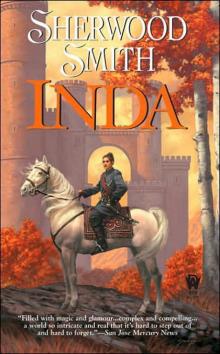 Inda
Inda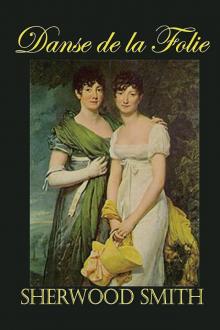 Danse De La Folie
Danse De La Folie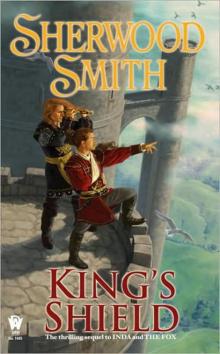 King's Shield
King's Shield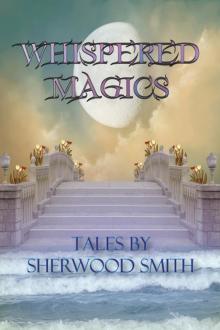 Whispered Magics
Whispered Magics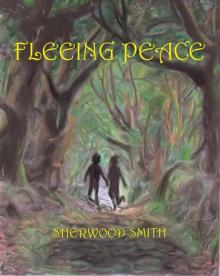 Fleeing Peace
Fleeing Peace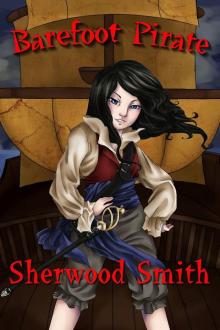 Barefoot Pirate
Barefoot Pirate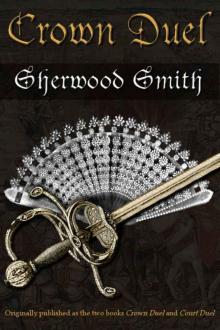 Crown Duel
Crown Duel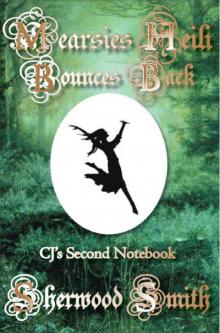 Mearsies Heili Bounces Back
Mearsies Heili Bounces Back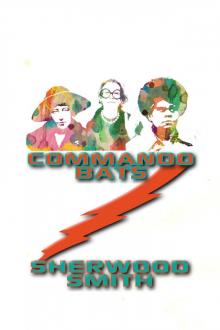 Commando Bats
Commando Bats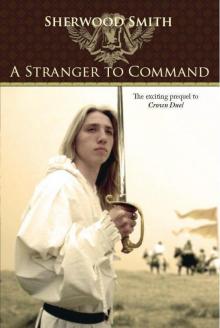 A Stranger to Command
A Stranger to Command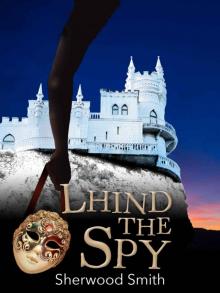 Lhind the Spy
Lhind the Spy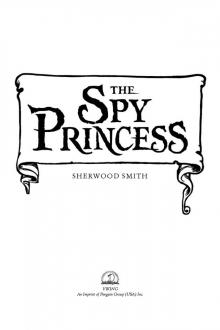 The Spy Princess
The Spy Princess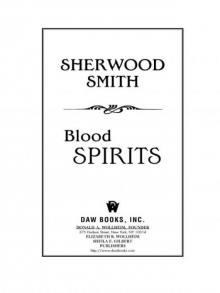 Blood Spirits
Blood Spirits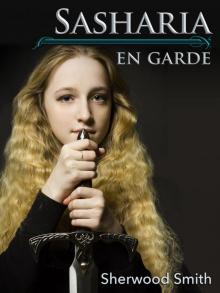 Sasharia en Garde
Sasharia en Garde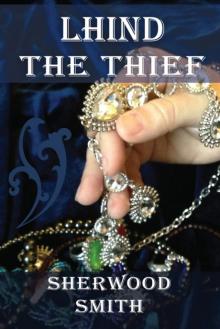 Lhind the Thief
Lhind the Thief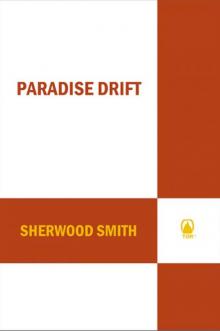 Paradise Drift
Paradise Drift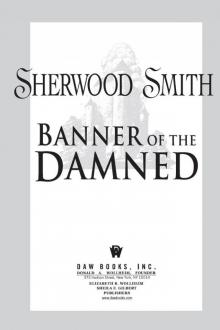 Banner of the Damned
Banner of the Damned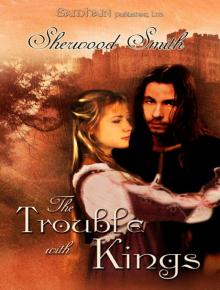 The Trouble With Kings
The Trouble With Kings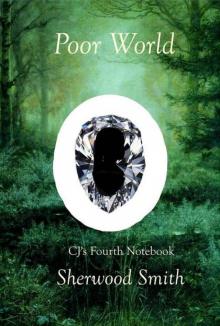 Poor World
Poor World Treason's Shore
Treason's Shore Wren Journeymage
Wren Journeymage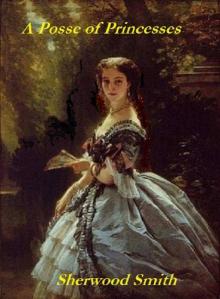 A Posse of Princesses
A Posse of Princesses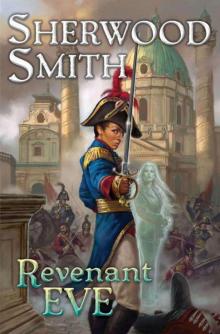 Revenant Eve
Revenant Eve Once a Princess
Once a Princess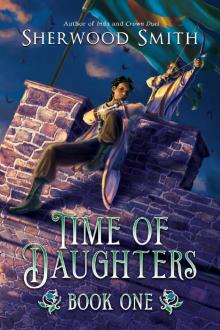 Time of Daughters I
Time of Daughters I Rondo Allegro
Rondo Allegro Coronets and Steel
Coronets and Steel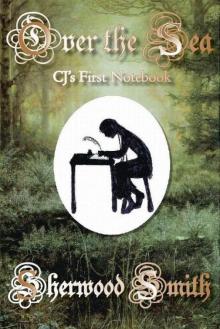 Over the Sea
Over the Sea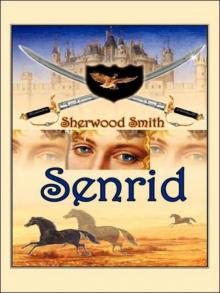 Senrid
Senrid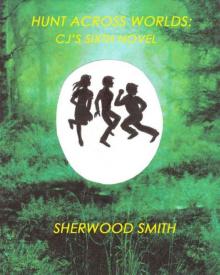 Hunt Across Worlds
Hunt Across Worlds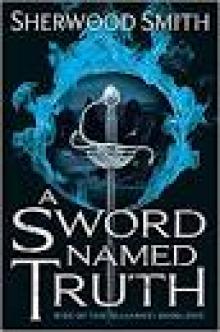 A Sword Named Truth
A Sword Named Truth The Fox
The Fox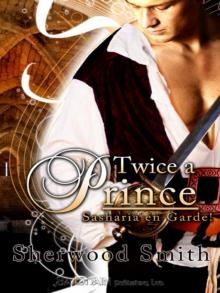 Twice a Prince
Twice a Prince Fair Winds and Homeward Sail: Sophy Croft's Story
Fair Winds and Homeward Sail: Sophy Croft's Story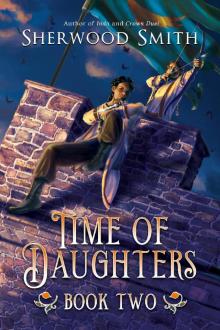 Time of Daughters II
Time of Daughters II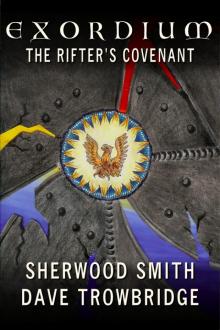 The Rifter's Covenant
The Rifter's Covenant The Phoenix in Flight
The Phoenix in Flight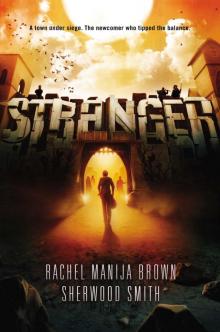 Stranger
Stranger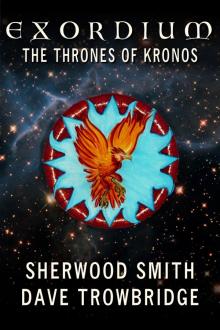 The Thrones of Kronos
The Thrones of Kronos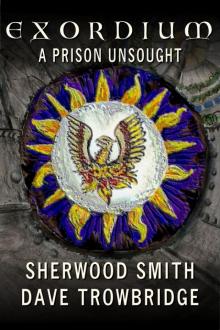 A Prison Unsought
A Prison Unsought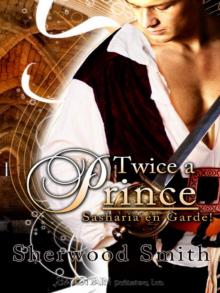 Twice a Prince: Sasharia En Garde Book 2
Twice a Prince: Sasharia En Garde Book 2